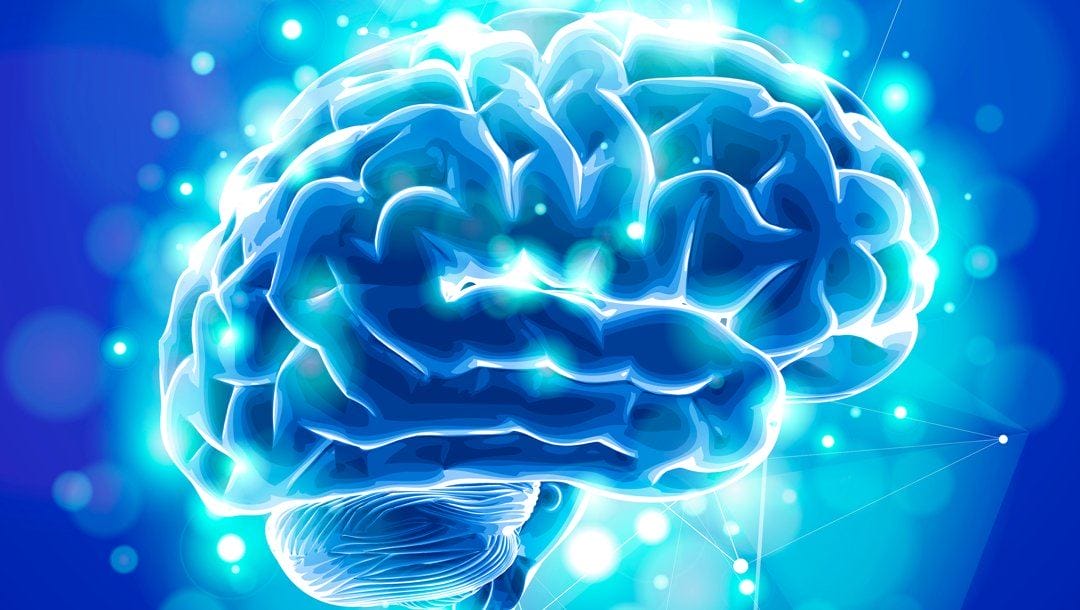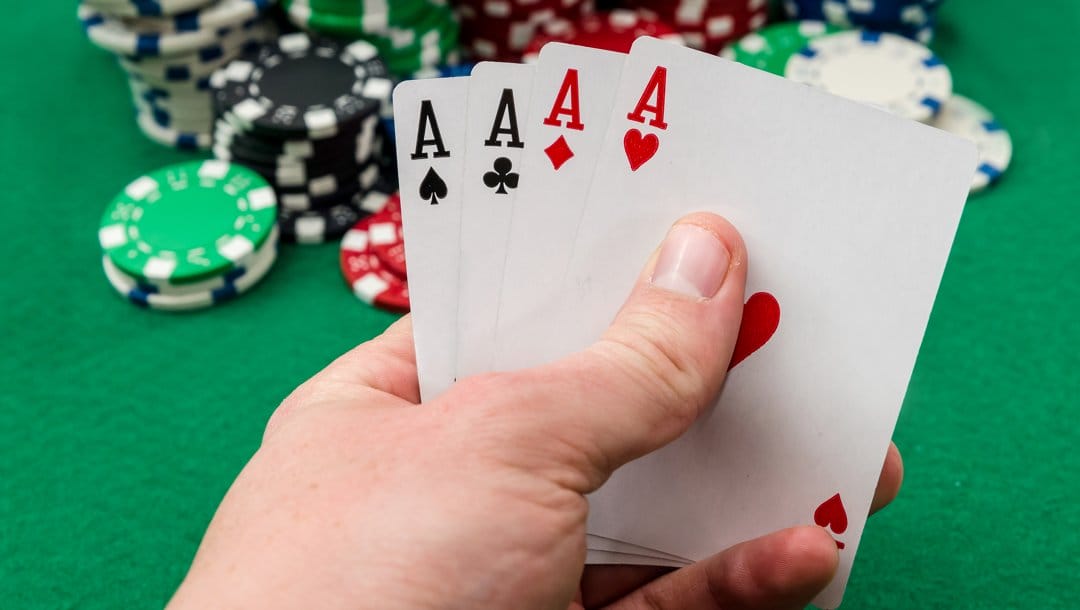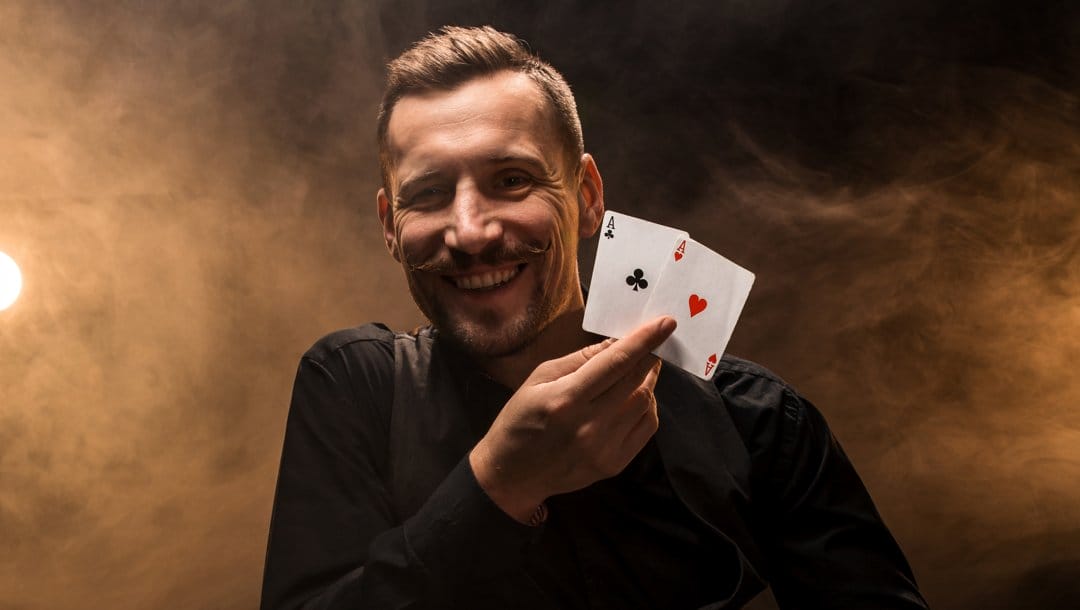Gambling games can potentially transform the risk-taking behavior associated with gambling into a fun and competitive pastime in which mind games and psychology can have a major impact on the gameplay and outcomes of roulette bets, slot spins and poker rounds.
From online casino games to brick-and-mortar tournaments, mastering the mind games of psychology can assist in improving your potential odds of winning. The amount of skill and luck you need to excel will differ depending on the game you’re playing, which is why it’s crucial to understand the distinction between skill-based and chance-based gambling.
Skill vs. Luck
Games purely based on chance require no skill in order to enjoy them to the fullest. Roulette, slots and RNG-based games make it effortless to flirt with fortune, allowing you to play without the need for advanced strategies and manipulative tactics. But games in which skill and tactics matter, such as poker and blackjack, offer you an opportunity to read opponents, influence the flow of play and make deceptive moves.
Widespread warnings about the gambler’s fallacy and confirmation bias point to humans’ strong tendency to create patterns where they don’t exist to make sense of the world. When external events occur for a logical reason, the mind connects the dots and allows you to learn from that occurrence in order to predict future occurrences. But the random nature of many gambling games brings sheer luck into the picture, making it impossible to link the dots to predict the outcome of, say, roulette spins.
Superstitions and fallacies make it easier to accept (by disguising) the random results of chance-based games. Luck, odds and probability are the only constants, yet many players will use illogical patterns and arbitrary rules to influence how they play. Not playing on a slot machine that just paid out is a great example of a mythological pattern.
Skill-based games are an entirely different story. Of course, these games have their fair share of superstitions, but there’s a whole other side to the gameplay where skill, experience and knowledge of human psychology can potentially provide a leg-up at the table.
The Psychology of Gambling

When you’re learning how to play poker and other casino games, mastering the fundamentals and fostering a positive mindset are integral to improving your odds of winning. It’s not just about odds and probabilities or who at the table holds the highest chip stack, especially when it’s not unheard of for players to win skill-based games with odds as low as zero.
Essentially, your mindset dictates how well you deal with wins and losses. It affects everything from emotions to decision-making, replacing anxiety and nervous plays with confidence and bold moves.
The secret to a positive mindset is acceptance of the risks involved in gambling. The thrill of placing wagers is only captivating because there’s a risk of losing everything. That said, there are tons of factors that affect composure and focus in high-stakes casino games, from mindfulness and breathing techniques to exercise and eating habits.
Understanding the psychology of gambling is a multi-faceted learning process. Casino games provide diverse entertainment options and each game requires a unique combination of knowledge, skills and luck.
The Mental Game of Poker

Poker is one of the most popular casino games worldwide, with hundreds of millions of players populating online poker rooms alone. It’s also the most prominent gambling mind game, where wits and skill potentially have major roles to play.
Whether you’re playing professional tournaments or practicing your game with friends, the psychology of gambling features prominently in all poker betting moves and gameplay analysis. Guides on how to play poker often highlight the merit of observing behavior through keen deduction, using the clues of body language and betting patterns to make more informed decisions.
Subtleties such as micro-facial expressions and eye movement can tell you whether opponents are excited or dismayed with their current hand. Players might check their hole cards too often, raking in the dopamine from a strong hand. Some will even bet aggressively with nothing to show for it except perhaps a tiny tell from a jittery leg under the table.
But reading body language accurately is merely one aspect of the psychology of poker you can perfect over time. Poker events can be high-stakes but they’re also opportunities for social interaction, where building relationships with other players can be beneficial to your win rate.
Goading opponents to lose control is a fairly common tactic. If you can get inside another player’s head and disrupt their mental game, they’re more likely to make mistakes and buckle under pressure. The mental game of poker works both ways, though, so be careful not to lose your cool when it’s your turn in the hot seat.
The long and the short of it is that the psychology of poker is extremely nuanced, to the point where strategic deception is a potent counter to all types of players. Bluffing adds yet another angle to what’s already an intense battle of wits. The only way to achieve an enviable win rate is to remain skeptical and play the odds responsibly.
Engage Your Mind With BetMGM Games
The mind games and psychology involved in gambling provide a fascinating deep dive into the secrets of success behind the most exhilarating casino games. If you’re in the mood to experience the most popular online casino games, register with BetMGM and perfect your mental game against players of all skill levels.









